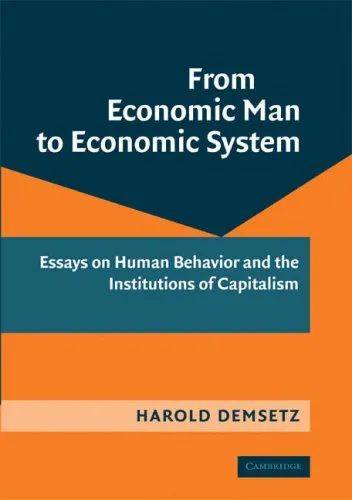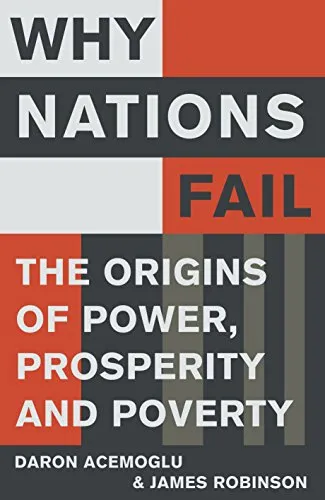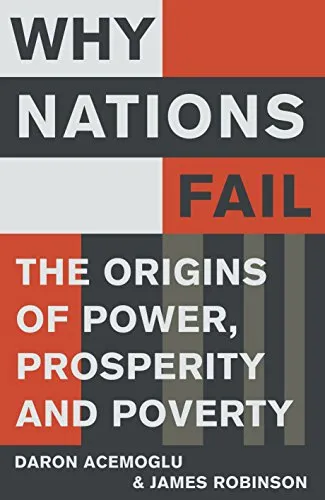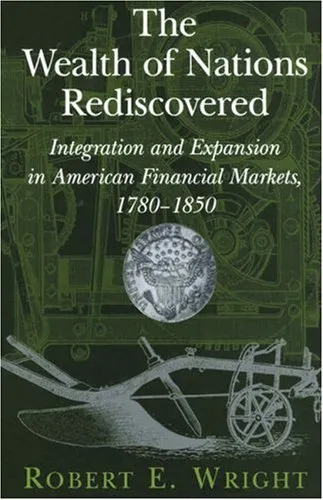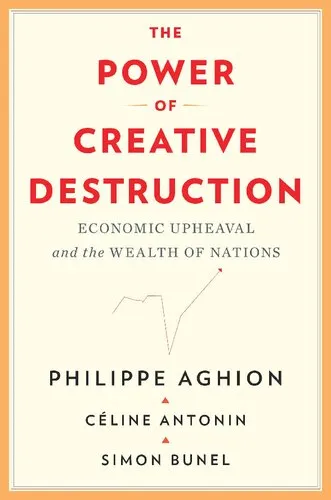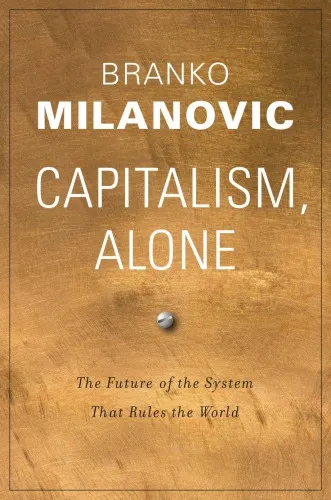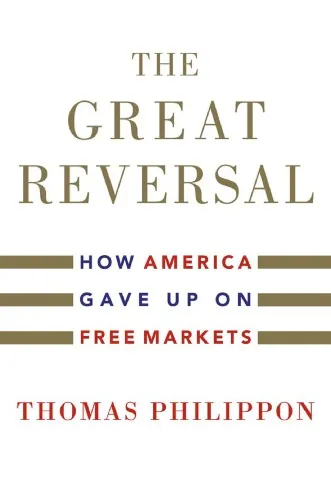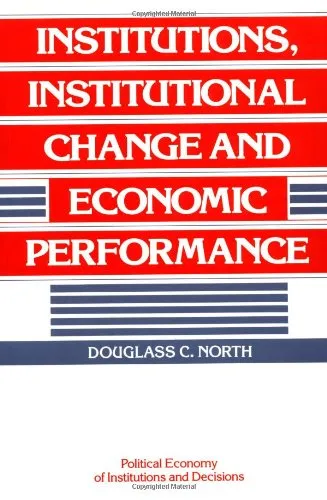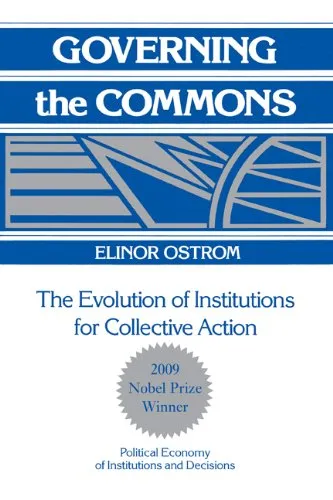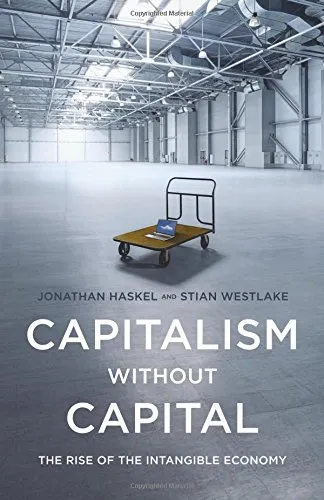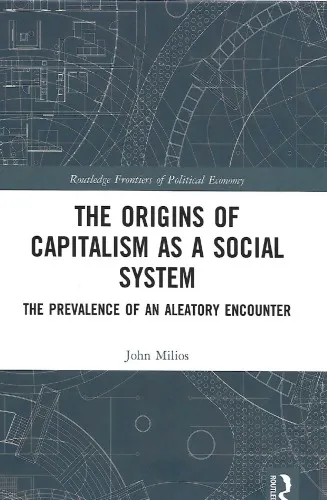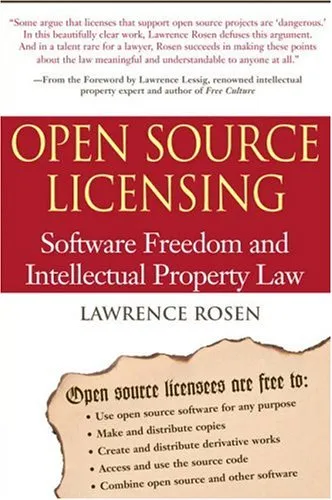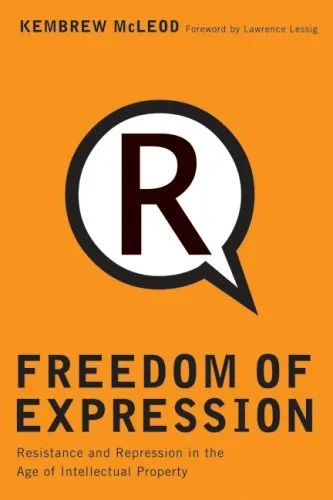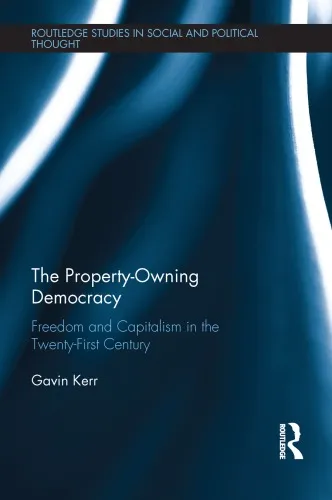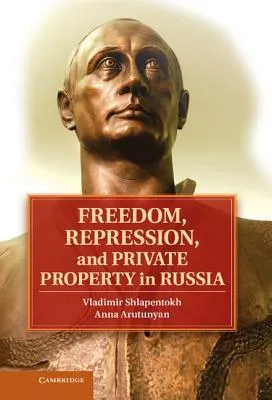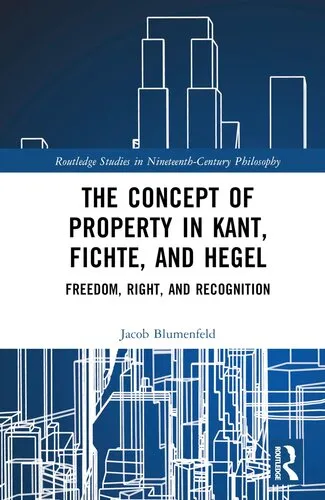From Economic Man to Economic System: Essays on Human Behavior and the Institutions of Capitalism
4.5
بر اساس نظر کاربران

شما میتونید سوالاتتون در باره کتاب رو از هوش مصنوعیش بعد از ورود بپرسید
هر دانلود یا پرسش از هوش مصنوعی 2 امتیاز لازم دارد، برای بدست آوردن امتیاز رایگان، به صفحه ی راهنمای امتیازات سر بزنید و یک سری کار ارزشمند انجام بدینکتاب های مرتبط:
معرفی کتاب "From Economic Man to Economic System: Essays on Human Behavior and the Institutions of Capitalism"
کتاب "From Economic Man to Economic System: Essays on Human Behavior and the Institutions of Capitalism" نوشتهی هارولد دمستز یکی از مهمترین و تأثیرگذارترین آثار در حوزههای اقتصاد خرد، رفتار انسانی، و مؤسسات سرمایهداری است. این کتاب مجموعهای از مقالات برجسته و تحلیلی است که به بررسی رابطه میان انسان به عنوان بازیگر اقتصادی و نقش نهادهای اقتصادی در جهتدهی به فعالیتهای او میپردازد. در ادامه، به مرور جزئیات اصلی این کتاب، پیامهای کلیدی، جملات مشهور و اهمیت این اثر پرداخته شده است.
خلاصهای جامع از کتاب
این کتاب مجموعهای از مقالات است که موضوعات متنوعی مانند انسان اقتصادی (Economic Man)، تأثیر نهادهای سرمایهداری، و کارکرد بازارها را پوشش میدهد. دمستز تلاش دارد تا فراتر از فردگرایی سادهنگرانه در اقتصاد حرکت کند و تعاملات پیچیده انسانی در قالب نهادهای اجتماعی و بازارها را برجسته کند. در این کتاب، وی نقش بازار در تخصیص نیروی کار، سرمایه و سایر منابع را تحلیل میکند و نشان میدهد که چگونه نهادهای اجتماعی مانند قوانین مالکیت و قراردادها میتوانند اثربخشی فعالیتهای اقتصادی را بهبود بخشند.
هارولد دمستز در این اثر میکوشد تا مرزی میان "انسان اقتصادی" و "سیستم اقتصادی" ترسیم کند. انسان اقتصادی مفهومی است که در اقتصاد کلاسیک برای شرح رفتار افراد در تصمیمگیریهای اقتصادی به کار میرود. اما دمستز نشان میدهد که این انسان بدون وجود نهادهای حمایتی مانند قوانین و بازارها نمیتواند اثربخشی لازم را داشته باشد. ایشان همچنین تأثیر پدیدههایی مانند Externalities و ساختارهای Property Rights را بر رفتار اقتصادی مطالعه کرده و بحثهای عمیقی را در مورد تأثیر نهادهای سرمایهداری بر توسعه اقتصادی مطرح میکند.
پیامهای کلیدی کتاب
- توضیح جامع درباره انسان اقتصادی و محدودیتهای این مفهوم در دنیای واقعی.
- نقش نهادهای اجتماعی و اقتصادی در تخصیص منابع بهینه و تقویت کارایی اقتصادی.
- بررسی تأثیر مثبت قوانین مالکیت (Property Rights) بر کاهش Externalities و افزایش کارایی.
- اهمیت دید سیستمی به جای دید فردی در تحلیل رفتار اقتصادی و توسعه جوامع.
- تحلیل سازوکارهای بازار و نهادهای سرمایهداری در ایجاد تعادل پایدار در اقتصاد.
جملات مشهور از کتاب
"Economics is not just about choices made by isolated individuals; it is about the institutions that mold and guide these choices."
"Property Rights are not mere legal constructs; they are fundamental economic tools to mitigate conflicts and encourage productivity."
"The effectiveness of capitalism lies in its ability to align personal incentives with collective well-being."
اهمیت این کتاب
کتاب "From Economic Man to Economic System" نه تنها برای اقتصاددانان و فعالان حوزه سیاستگذاری اقتصادی اهمیت ویژهای دارد، بلکه برای دانشجویان و محققانی که به دنبال درک عمیقتر از تعاملات انسانها و نهادهای اقتصادی هستند نیز منبعی ارزشمند است. دمستز دیدگاهی جامع و چندوجهی ارائه میدهد که تنها به تحلیل رفتار فردی انسانها محدود نمیشود، بلکه ساختارها و نهادهای پشتیبان این رفتارها را نیز مورد بررسی قرار میدهد.
در دنیای امروزی که پیچیدگیهای اقتصادی در حال افزایش است، شناخت نهادهای اقتصادی و تأثیرشان بر رفتار انسانی برای دستیابی به توسعه پایدار و حل معضلات اقتصادی ضروری است. این کتاب ابزاری ایدهآل برای درک چنین موضوعاتی محسوب میشود.
با بهرهگیری از بحثهای نظری دقیق و مثالهای کاربردی، این اثر به خوانندگان کمک میکند تا نه تنها به محدودیتهای مفهوم سنتی انسان اقتصادی پی ببرند، بلکه جایگاه مؤسسات سرمایهداری را در پیشرفت جوامع درک کنند. بنابراین، "From Economic Man to Economic System" اثری است که نمیتوان از تأثیر و اهمیت آن چشمپوشی کرد.
Introduction to "From Economic Man to Economic System: Essays on Human Behavior and the Institutions of Capitalism"
"From Economic Man to Economic System: Essays on Human Behavior and the Institutions of Capitalism" is a compelling exploration of human behavior and the foundational institutions that define modern capitalism. Authored by distinguished economist Harold Demsetz, this book challenges conventional theories of economic behavior, offering fresh perspectives on how individuals and institutions interact to shape market systems. Through a series of insightful essays, the book takes readers on a journey from traditional economic models to a deeper, more nuanced understanding of the mechanisms that govern human decision-making and resource allocation in capitalist societies.
By delving into the complexities of economic systems, Harold Demsetz questions the classical assumptions of "Economic Man" – the rational, utility-maximizing individual – and instead emphasizes the roles of bounded rationality, cultural norms, and institutional frameworks. The essays are meticulously crafted to bridge the gap between theoretical economics and real-world phenomena, making the book indispensable for students, academics, and anyone curious about the intricacies of capitalism.
Detailed Summary of the Book
The book is divided into several essays that collectively explore the evolution of economic thought from classical theories to modern frameworks that account for institutional dynamics. Demsetz begins with an examination of the concept of "Economic Man," a construct that serves as the foundation of traditional economic theories. He critiques its simplicity and lack of realism, pointing out how human behavior often deviates from the rational models typically assumed by economists.
The subsequent essays delve into the role of institutions in shaping economic outcomes. Institutions, according to Demsetz, are the rules and norms that govern societal behavior, and they play a pivotal role in reducing transaction costs, fostering cooperation, and enabling markets to function efficiently. The author explores topics such as property rights, contractual arrangements, and the emergence of social norms, emphasizing how these elements influence economic productivity and social welfare.
One of the central themes of the book is the relationship between competition and regulation within capitalist systems. Demsetz critiques the tendency to oversimplify the dynamics of competition, highlighting the importance of dynamic efficiencies rather than static models of perfect competition. He also addresses the unintended consequences of regulation, arguing that well-intentioned policies often produce suboptimal outcomes due to their failure to align with actual economic behaviors and institutional realities.
Overall, the book provides an intellectually stimulating and comprehensive overview of how human behavior, institutional frameworks, and market dynamics interact to create the economic systems we observe today.
Key Takeaways
- Economic models must account for the complexity and imperfect rationality of human behavior.
- Institutions are critical in shaping economic outcomes by reducing transaction costs and encouraging cooperation.
- Dynamic competition is far more important than static notions of perfect competition for fostering innovation and growth.
- Well-designed property rights and contractual arrangements are essential for efficient resource allocation in capitalist systems.
- Not all regulations lead to societal benefits; policymakers must carefully assess the broader implications of their interventions.
Famous Quotes from the Book
-
"Markets are not perfect institutions, but they outperform all others in allocating resources efficiently."
-
"The assumptions of economic man strip away the very elements that make humans fascinating: our unpredictability, our institutions, and our innovations."
-
"Competition is not the absence of power; it is the interplay of forces vying for advantage in a dynamic economy."
Why This Book Matters
"From Economic Man to Economic System" stands out as a crucial contribution to economic literature because it bridges the gap between theoretical models and practical realities. Harold Demsetz challenges readers to move beyond the theoretical elegance of simplified economic models and embrace the complexity of actual human behavior and institutional frameworks. The book is not only a critique of classical assumptions but also a roadmap for understanding how capitalist economies function in the real world.
This book matters for anyone interested in economics, from students seeking to grasp foundational concepts to policymakers looking for nuanced insights into the consequences of their decisions. Its emphasis on institutions and human behavior as central to economic outcomes provides a refreshing lens for rethinking economic theories and practices in the 21st century.
More than just a collection of essays, the work provides a deep appreciation for the adaptability and resilience of capitalism while remaining critical of its shortcomings. It encourages readers to engage thoughtfully with the economic systems that shape their lives, making it a timeless and essential read.
دانلود رایگان مستقیم
شما میتونید سوالاتتون در باره کتاب رو از هوش مصنوعیش بعد از ورود بپرسید
دسترسی به کتابها از طریق پلتفرمهای قانونی و کتابخانههای عمومی نه تنها از حقوق نویسندگان و ناشران حمایت میکند، بلکه به پایداری فرهنگ کتابخوانی نیز کمک میرساند. پیش از دانلود، لحظهای به بررسی این گزینهها فکر کنید.
این کتاب رو در پلتفرم های دیگه ببینید
WorldCat به شما کمک میکنه تا کتاب ها رو در کتابخانه های سراسر دنیا پیدا کنید
امتیازها، نظرات تخصصی و صحبت ها درباره کتاب را در Goodreads ببینید
کتابهای کمیاب یا دست دوم را در AbeBooks پیدا کنید و بخرید
1390
بازدید4.5
امتیاز0
نظر98%
رضایتنظرات:
4.5
بر اساس 0 نظر کاربران
Questions & Answers
Ask questions about this book or help others by answering
No questions yet. Be the first to ask!
